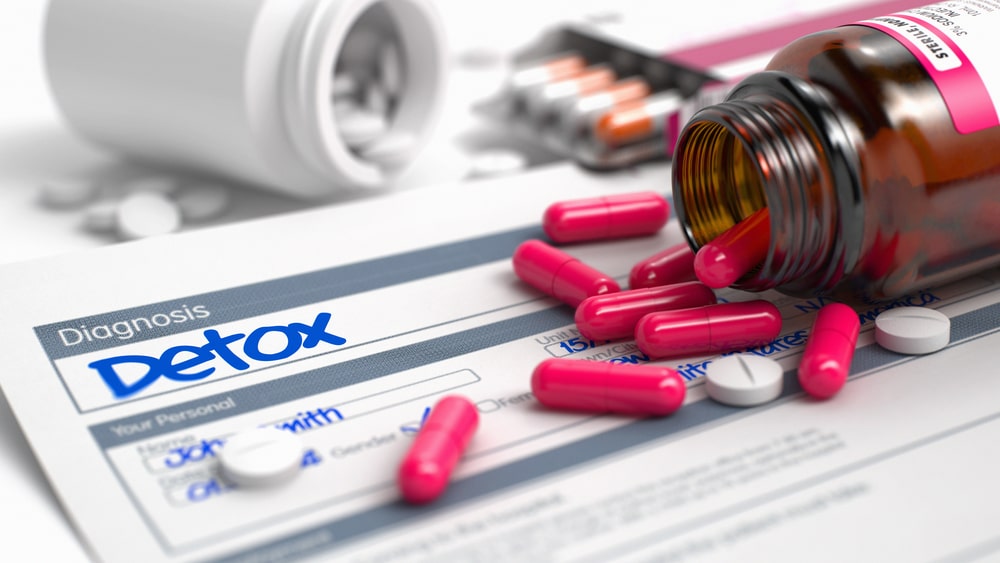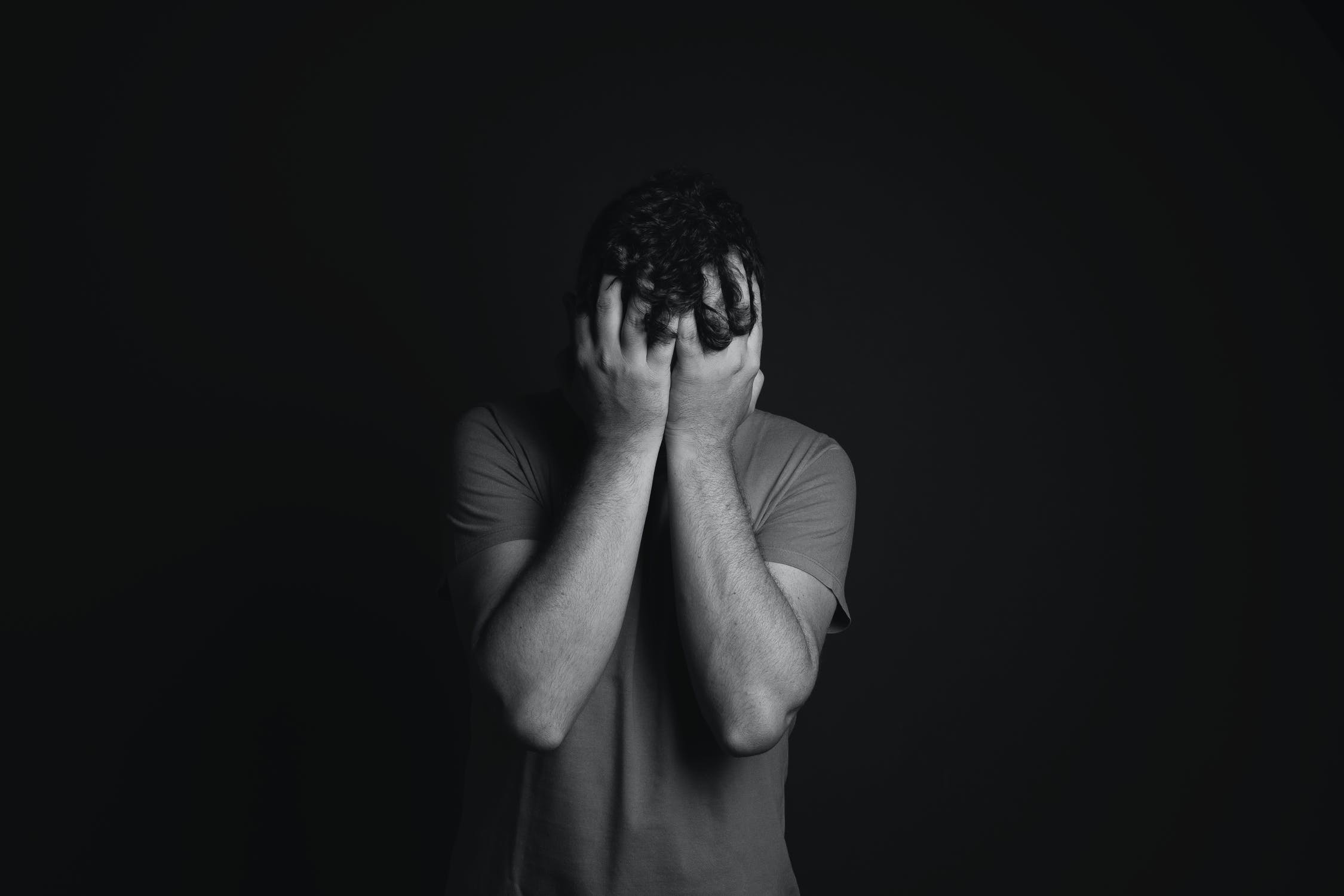Alcohol and drug addiction negatively impact every area of a person’s life. They will experience financial and legal problems, relationship issues, and health issues. Being a slave to drug or alcohol cravings also harms someone’s ability to achieve their goals and reach their full potential. When someone who’s been struggling with addiction finally reaches the point of “enough is enough,” it’s a positive sign, and the first step to recovering from this disorder.

But ambition and resolve are often not enough to overcome cravings and withdrawal. When someone quits using drugs or cuts back on a substance, their body will naturally begin to detox. But this process, while necessary, comes with a range of painful withdrawal symptoms. In some cases, withdrawal symptoms can be deadly.
Medical professionals do not advise a cold-turkey detox because of the dangers and risks associated with the process. So, how can someone safely detox from drugs or alcohol and achieve sobriety? With outside intervention, it’s possible for someone to get through the withdrawal process with minimal discomfort, and go on to achieve and maintain lifelong sobriety.
What is the difference between cold-turkey detox and medically-assisted detox?
In cold-turkey detox, a person decides to stop using drugs or alcohol abruptly. They usually do this at home, without medical assistance or outside intervention. This is not the only option to get clean from substances. It’s possible for someone to participate in a medically-assisted detox program.
In medically-assisted detox, patients are evaluated by trained clinicians. Doctors then create a customized treatment plan for the patient’s detox and withdrawal timeline. The patient may need to be put on a tapering-off schedule, where they are given replacement drugs to wean the body off of a substance slowly. Also, doctors will often prescribe medications to lessen the severity of withdrawal symptoms. For example, a person withdrawing from heroin is at risk of experiencing anxiety attacks when they try to detox from the drug. A doctor can prescribe an anti-anxiety medication to help the patient with this symptom.
Patients do not necessarily have to be hospitalized to undergo medically-assisted detox. They can attend an outpatient treatment center and check in with doctors at pre-scheduled times while living at home while they go through withdrawals. This may be an attractive option for people with school, work, or family responsibilities that make it hard for them to be away from home for long periods. Working with clinicians during the detox and withdrawal process also puts patients in-touch with professionals who can follow up with them and create further rehabilitation plans for their recovery.
What are the dangers of cold-turkey detox?
On the surface, cold-turkey detox may seem like the best option for someone. They get to stay in the privacy of their own home, and they also get to avoid social stigma or scrutiny that can sometimes happen when an individual reaches out for help for addiction. But cold-turkey detox comes with a range of risks that can severely jeopardize a person’s health, and their ability to achieve and maintain sobriety.
When someone is addicted to drugs or alcohol, their body builds a tolerance and both a physical and mental dependence on the chemicals in these substances. An addicted individual needs the chemicals to maintain a sense of physical and emotional equilibrium. Once they stop taking drugs or drinking, the body starts to clear itself of these chemical substances, in an attempt to return to its natural, non-addicted state. This process involves withdrawal symptoms that can impact a person physically, mentally, and emotionally.
Different substances will create various withdrawal symptoms, and these can vary significantly from one patient to the next. An individual’s overall physical health, their weight, and metabolism can also impact the severity and duration of withdrawals. When detox is done safely, the individual will go through the detox and withdrawal process in a controlled environment where they have access to medical attention, and doctors can prevent potentially dangerous symptoms from occurring. Some of the most dangerous detox symptoms include:
- Seizures and Coma
- Tachycardia and Changes in Blood Pressure
- Tremors and Muscle Aches
- Delusions and Hallucinations
Other less severe but unpleasant symptoms of withdrawal include anxiety and depression, insomnia, problems with appetite, headaches, and flu-like symptoms.
Also, when someone tries to quit drugs cold turkey without medical supervision, they don’t have the advantage of going through this process in a controlled, drug-free environment. Trying to detox at home without the assistance, guidance, and support of professionals puts those in recovery at risk of relapse. Outside, harmful influences give people access to drugs or alcohol while they are in a vulnerable state. For many who go through detox alone, the pain of withdrawal symptoms can make it all too tempting for someone to retake drugs for relief.
What are the statistics on cold-turkey detox risks?
Many complications can occur when someone tries to do a cold-turkey detox. Up to 10% of all alcoholics who quit drinking will experience delirium tremens, a potentially life-threatening condition. Some sources estimate that up to 25% of people who get delirium tremens will die from the condition if they do not get medical attention.
Tachycardia and cardiac issues are also a risk associated with cold-turkey detox. Patients with underlying cardiac weakness may be at risk of experiencing a heart attack or stroke while detoxing.
How can someone avoid these risks and dangers associated with the detox process?
Medically-assisted detox is one of the safest ways to go through the withdrawal process. Patients can work with a team of addiction specialists who can create a personalized, tapering-off schedule with replacement medications to lessen the severity and duration of withdrawals. Doctors can also prescribe medicine to alleviate the pain and discomfort associated with the detox process.
At Mission Harbor Behavioral Health, patients have access to both inpatient and outpatient detox programs. If you or someone you love is struggling with drug or alcohol addiction, it’s never too late to quit. Please contact Mission Harbor today to learn more about how our detox programs can keep you safe and comfortable while you achieve sobriety.
Drugs Used to Help People Detox
When you enter a Southern California rehab center, your doctors and staff will go over the safest and most successful ways to detox from your addiction. They will also talk you through which drugs you can use in medical detox.
Benzodiazepines, as the Journal of Clinical Pharmacy and Therapeutics relates, are one of the go-to prescriptions for doctors who are treating people via medical detox. The most common benzodiazepines prescribed are:

Benzodiazepines can help control symptoms like disorientation and trembling. Doctors might prescribe carbamazepine (Tegretol) if the patient begins to experience convulsions or seizures. Doctors administer all of these drugs in a controlled environment to see that patients cannot access their medications independently.
Cold-Turkey Quitting Opioids and Benzodiazepines
Quitting cold-turkey can be dangerous when you have been using opioids or benzodiazepines. Those who are addicted to opiates are at high-risk of having hazardous withdrawal symptoms and going back to using again if they try to end their use abruptly. Along with alcohol, benzodiazepines and opioids can lead to deathly consequences when trying to stop using them without medical intervention.
Benzodiazepines are classified as Schedule IV depressants since they have low abuse potential but can become addictive. Patients should follow prescription instructions with care. While they can help those with substance use disorder calm down after trying to quit independently, rehabs need to regulate distribution carefully.
Relapsing Statistics
Studies show that trying to quit cold-turkey can lead to a greater chance of relapse. Alcohol is a prime example. Those with acute alcohol withdrawal who do not receive treatment have at least a 5% risk of enduring a seizure. Unfortunately, only about 20% of those who quit alcohol abruptly at home can maintain their success.
Some people mistakenly believe that getting more electrolytes and increasing water consumption will help with withdrawal symptoms. This belief is not true and illustrates how misinformation presents more of the dangers of quitting all of a sudden. Some doctors might use buprenorphine to treat patients at home. Initially, studies found an 88% success rate for this drug, but numbers have varied from 40% to 60% since then.
At-home detox kits are becoming more widely available online, but their efficacy is minimal at best. Medical professionals cannot guarantee personal safety since these kits do not require a doctor’s prescription. Is quitting cold-turkey dangerous? Absolutely. Is trying to stop with an at-home kit dangerous? Potentially. Plus, you will miss out on getting the type of aftercare and support you would get from a rehab center.
Starting the Detox Journey
If you are left wondering, “Is quitting cold-turkey dangerous?” the answer is a resounding “Yes!” There are many dangers of quitting quite suddenly, and the chance of successfully abstaining from substances is relatively low. You won’t get to spend time cultivating a toolkit for coping with your root problems either, which is something you can do with one of the many types of therapy available. Checking into a Southern California rehab can help you get on track after you detox – an excursion you can take with caring professionals.
The facilities at Mission Harbor are staffed with trained experts to best assist patients with their mental health issues. We are capable of dealing with any and all cases with a licensed staff, equipment, and approved techniques. Our mission is to help those who want to help themselves, and we support your decision in seeking help.
Get Help Now
Alcohol addiction is extremely difficult to overcome on your own.. Seek specialized help and let professionals guide you in your recovery.

